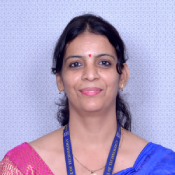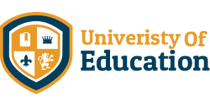
Dr. SAVITA CHOUDHARY
ASSOCIATE PROFESSOR & HEAD
The B.E. program in Computer Science (IoT & Cybersecurity with Blockchain Technology) was launched in the Academic Year 2022–23, with the approval of the All India Council for Technical Education (AICTE), New Delhi. The program has an intake capacity of 60 students and is designed to prepare future-ready professionals in three rapidly evolving domains—Internet of Things (IoT), Cybersecurity, and Blockchain Technology.
About the Technologies in the Program
Blockchain Technology is a decentralized, distributed public digital ledger used to securely record transactions across multiple systems. It ensures data integrity and transparency, making it nearly impossible to alter recorded data without affecting subsequent blocks and obtaining consensus from the entire network.
Cybersecurity involves the technologies, processes, and practices designed to protect networks, devices, programs, and data from unauthorized access, attacks, or damage. With the exponential rise in digital connectivity, robust cybersecurity has become a critical need across all sectors.
Internet of Things (IoT) refers to the network of interconnected sensors and actuators that communicate with computing systems to monitor and manage the behavior of physical objects. By 2026, the number of IoT devices globally is expected to reach 26.4 billion, including 11.4 billion consumer devices and 13.3 billion enterprise devices, highlighting the tremendous scope and impact of this technology.
Applications and Industry Relevance of the Program
IoT is revolutionizing infrastructure across key verticals such as:
- Agriculture & Smart Farming
- Automotive & Transportation
- Defence & Aerospace
- Healthcare & Medical Devices
- Manufacturing & Industrial Automation
- Power & Energy
- Smart Cities, Smart Homes, Safety & Surveillance
Blockchain Technology enhances the security and reliability of IoT networks by enabling traceable, tamper-proof data sharing among connected devices. It also strengthens cybersecurity through advanced encryption, data immutability, and secure communication protocols—making digital systems more resilient and trustworthy.
- B.E in CSE (IOT & Cybersecurity including Blockchain Technology) with 60 intake
Vision
- Building a Proficient Internet of Things Engineers with core values to solve real time problems.
Mission
- To offer state-of-the-art Internet of Things education imparting skills for building Cutting-edge and innovative applications with block chain and cyber security.
- To inculate ethically and socially committed Internet of Things professionals through value-added courses.
- Promoting research blend among students and enabling continuous learnings.
Programme Outcomes
- PO1: Engineering Knowledge: Apply knowledge of mathematics, science, engineering fundamentals and an engineering specialization to the solution of complex engineering problems.
- PO2: Problem Analysis: Identify, formulate, research literature and analyze complex engineering problems reaching substantiated conclusions using first principles of mathematics, natural sciences and engineering sciences.
- PO3: Design/ Development of Solutions: Design solutions for complex engineering problems and design system components or processes that meet specified needs with appropriate consideration for public health and safety, cultural, societal and environmental considerations.
- PO4: Conduct investigations: of complex problems using research-based knowledge and research methods including design of experiments, analysis and interpretation of data and synthesis of information to provide valid conclusions.
- PO5: Modern Tool Usage: Create, select and apply appropriate techniques, resources and modern engineering and IT tools including prediction and modeling to complex engineering activities with an under- standing of the limitations.
- PO6: The Engineer and Society: Apply reasoning informed by contextual knowledge to assess societal, health, safety, legal and cultural issues and the consequent responsibilities relevant to professional engineering practice.
- PO7: Environment and Sustainability: Understand the impact of professional engineering solutions in societal and environmental contexts and demonstrate knowledge of and need for sustainable development.
- PO8: Ethics: Apply ethical principles and commit to professional ethics and responsibilities and norms of engineering practice.
- PO9: Individual and Team Work: Function effectively as an individual, and as a member or leader in diverse teams and in multi-disciplinary settings.
- PO10: Communication: Communicate effectively on complex engineering activities with the engineering community and with society at large, such as being able to comprehend and write effective reports and design documentation, make effective presentations and give and receive clear instructions.
- PO11: Project Management and Finance: Demonstrate knowledge and understanding of engineering and management principles and apply these to owners own work, as a member and leader in a team, to manage projects and in multidisciplinary environments.
- PO12: Life-long Learning: Recognize the need for and have the preparation and ability to engage in independent and life-long learning in the broadest context of technological change.
- To offer state-of-the-art Internet of Things education imparting skills for building cutting-edge and innovative applications with block chain and cyber security.
- To inculcate ethically and socially committed Internet of Things professionals through value-added courses.
- Promoting research blend among students and enabling continuous learning.
Programme Specific Outcomes
- Ability to adapt to a rapidly changing environment by learning and employing new programming skills in Cyber Security and Block Chain Technologies
- Ability to use diverse knowledge across the domains with inter-personal skills to deliver the industry's needs
Programme Educational Outcomes
- Graduates will have a strong foundation in fundamentals to solve engineering problems in different domains.
- To enable graduates to emerge as independent entrepreneurs and future leaders
- Graduates will install interpersonal skills and attitudes in the process of lifelong learning.
Faculty members
| Sl. No. | Name | Designation |
| 01 | Dr. SAVITA CHOUDHARY | ASSOCIATE PROFESSOR & HEAD |
| 02 | Mrs. Roopa H.L. | ASSOCIATE PROFESSOR |
| 03 | Ms. Ganashree R. | ASSOCIATE PROFESSOR |
Staff Members
| Sl. No. | Name | Designation |
| 01 | Mr. Pavan Kalyan S. N. | ASSOCIATE PROFESSOR |
| 02 | Mr. Ramesh N. R. | Attender |
-
SL NO Infrastructure No. of Quantity 1 Class rooms 2 2 Laboratories 1 3 Seminar Hall 0 - Research (research labs and facilities) 0
-
Publications
-
Journal Publications (Only Scopus Indexed)
SL. No NAME Title of the Paper Journal Name Vol. & No. Year Type 1 Dr. Savita Choudhary Fragmentation aware heuristic algorithm for routing and wavelength assignment in optical networks Indonesian Journal of Electrical Engineering and Computer Science ISSN: 2502-4752 DOI: 10.11591/ijeecs.v31 2023 Scopus 2 Dr. Savita Choudhary Soil Fertility and Yield Prediction of Coffee Plantation using Machine Learning Technique Research Journal Of Agricultural Sciences An International Journal Volume: 13, ISSUE: 02 P-ISSN: 0976-1675, E-ISSN: 2249-4538 2022 Scopus 3 Dr. Savita Choudhary A Bootstrap Aggregation Approach for Adequate Crop Fertilizer & Nutrition Recommendation Indonesian Journal of Electrical Engineering and Vol. 26, No. 3 2022 Scopus 4 Dr. Savita Choudhary Music Information Retrieval using Similarity Based Relevance Ranking Techniques Scalable Computing: Practice and Experience Volume 23, Issues 3 2022 Scopus 5 Dr. Savita Choudhary An Artificial Intelligence Solution for Crop Recommendation Indonesian Journal of Electrical Engineering and Vol. 25, Issue – 3 2022 Scopus 6 Dr. Savita Choudhary Deep convolutional neural network for chronic kidney disease prediction using ultrasound imaging Bio-Algorithms and Med-Systems 17(2) 2021 Scopus 7 Dr. Savita Choudhary Predicting the Stages of Chronic Kidney Disease Using Machine Learning Approach International Journal of Advanced Science and Vol. 29, No. 04 2020 Scopus 8 Dr. Savita Choudhary Feature extraction and genre classification using customized kernel for Music information retrieval Turkish Journal of Computer and Mathematics Education Vol. 12, No. 14 2021 Scopus 9 Dr. Savita Choudhary Title of the Paper Journal Name Vol. & No. Year Type 10 Dr. Savita Choudhary A Multi-Objective Optimization Algorithm for Routing Path Selection and Wavelength Allocation for Dynamic WDM International Journal of Engineering and Advanced Technology (IJEAT) Volume-10, Issue-5 2021 Scopus 11 Dr. Savita Choudhary An AI solution for Soil Fertility and Crop Friendliness Detection and Monitoring International Journal of Engineering and Advanced Technology (IJEAT) Volume-10, Issue-3 2021 Scopus 12 Dr. Savita Choudhary Research of Algorithms used for Routing and Assigning Wavelength WDM Networks International Journal of Innovative and Exploring Engineering Volume-8, Issue – 12 2020 Scopus 13 Dr. Savita Choudhary Autonomous Crop Irrigation System using Artificial Intelligence International Journal of Engineering and Advanced Technology (IJEAT) Volume-8, Issue-5S 2019 Scopus 14 Dr. Savita Choudhary A Review on Predicting the Stages of Chronic Kidney Disease Using Machine Learning Techniques International Journal of Science and Research (IJSR) 2319-7064 2019 Scopus 15 Dr. Savita Choudhary A New Machine Learning Feature Selection Method used in Fertilizer Recommendation Bulletin of Electrical Engineering and Informatics ISSN: 2302-9285 2024 Scopus
-
Journal Publications (Only Scopus Indexed)
-
PHDs Guided
SL NO NAME Number of PhDs Guided Number of PhDs Ongoing 1 Dr. Savita Choudhary 4 4 Conference Publications (Only Scopus Indexed)
Sl. No NAME Conference Level Title of Paper Conference Year 1 Dr. Savita Choudhary International Prediction of Ultrasound Kidney Imaging using Convolution Neural Networks IEEE International Conference Communication Systems and Network Technologies, TIT, Bhopal 2023 2 Dr. Savita Choudhary International Survey on Liver Disease Prediction and Recommendation 12th IEEE International Conference Communication Systems and Network Technologies, TIT, Bhopal 2023 3 Mrs. Roopa H L International Enhancing QoS Parameters Using Dynamic Clustering Algorithm for IoT Applications 3rd IEEE International Conference on Knowledge Engineering and Communication System, SJCIT, Bengaluru, IEEE 2025 -
Patents Published
SL NO Title of the Patent Patent Application No Status of Patent
(Published / Granted)Inventor/s Name Applicant/s Name Patent Filed Date
(DD/MM/YYYY)Patent Published/Granted Date
(DD/MM/YYYY)Patent Issue No / Granted Number Assignee/s Name
(Institute Affiliation)Department/s Agency 1 MACHINE LEARNING-ENHANCED SYSTEM FOR DETECTION AND ANALYSIS OF ANTI-TERRORIST ACTIVITIES Number-202341054663 Published Roopa H L Roopa H L 14/08/2023 01/09/2023 No.202341054663 Brindavan College of Engineering ISE Mamatha Bangi -
MoUs
Faculty achievements and recognitions
- Dr. Savitha Choudhary is authoring a book chapter at the Sir M. Visvesvaraya Institute of Technology during the academic year 2021 - 2022. Her contribution reflects her academic commitment and expertise in her field, adding significant value to the institution's research and publication endeavors.
- Dr. Savitha Choudhary published a research paper in a Fourth Quartile (Q3) journal during the academic year 2020 - 2021 under the affiliation of Sir M. Visvesvaraya Institute of Technology (SIR MVIT).
- Dr. Savitha Choudhary published a research paper in a Fourth Quartile (Q3) journal during the academic year 2021 - 2022 under the affiliation of Sir M. Visvesvaraya Institute of Technology (SIR MVIT).
- Dr. Savitha Choudhary published a research paper in a Fourth Quartile (Q4) journal during the academic year 2022 - 2023 under the affiliation of Sir M. Visvesvaraya Institute of Technology (SIR MVIT).
- Mrs. ROOPA H L Attended a Faculty Development Program on Blockchain Technology from 20th March 2023 to 24th March 2023, organized by E & ICT Academy, IIT Kanpur.
- Mrs. ROOPA H L Attended an NPTEL E-Awareness Workshop on 27th January 2023.
- Mrs. ROOPA H L Participated in a Three-Day Faculty Development Program on “Trends in Cyber Security & Data Analytics” held from 14th to 16th September 2022, organized by the Department of Artificial Intelligence & Machine Learning, Bangalore Institute of Technology, Bengaluru - 560004.
- Mrs. ROOPA H L Participated in a One-Day Workshop on “Fine Tuning of NEP Compliance”.
- Mrs. ROOPA H L Attended an Online AICTE Recognized Faculty Development Programme on “Secure Website Development” from 14th March 2022 to 18th March 2022, conducted by the Department of Computer Science and Engineering, NITTTR Chandigarh.
- Mrs. ROOPA H L Attended a One-Week National Level Faculty Development Programme on “Artificial Intelligence, Machine Learning & Applications” from 25th July to 29th July 2022, organized by Bharatratna Indira Gandhi College of Engineering, Solapur.
- Mrs. ROOPA H L Attended a Three-Day National Level Faculty Development Programme on “Artificial Intelligence, Machine Learning & Applications” from 14th September to 16th September 2022, organized by the Artificial Intelligence & Machine Learning Department in association with NDLI Club, Library & Information Centre, Bangalore Institute of Technology, Bengaluru - 560004.
- Mr. Pavan Kalyan S. N. participated in a 5-day workshop on “Mastering Microsoft Office: Enhancing Skill Automation and Data Analysis”, organized by the Department of Information Science and Engineering, Sir M. Visvesvaraya Institute of Technology, from 5th February 2025 to 10th February 2025.
Students’ achievements and recognitions s
-
Technical/Cocurricular (achievements and recognitions from other organizations/ institutions)
SL USN NAME SEM TITLE ORGANISED BY DATE OF EVENT 1 1MV22IC028 NAKSHA R 6 Technika 2k25- Akshaya Anveshana Akshaya Institute of Technology 25-03-2025 to 26-03-2025 6 Career Essentials in Cybersecurity Microsoft and LinkedIn 30-06-2024 2 1MV22IC045 SATHVIK A R 6 Technika 2k25- Akshaya Anveshana Akshaya Institute of Technology 25-03-2025 to 26-03-2025 6 Career Essentials in Cybersecurity by Microsoft and LinkedIn Microsoft and LinkedIn 11-07-2024 3 1MV23IC405 SOURABHBASAGONDA MAGADUM 6 Technika 2k25- Akshaya Anveshana Akshaya Institute of Technology 25-03-2025 to 26-03-2025 6 Android Development SkillCraft Technology 01-01-2025 6 Techtrivia 24 Hackathon Government Engineering College Hassan 10-11-2024 4 1MV24IC053 TANMAY SHANKAR 2 CAMPUS AMBASSADOR LEADERBOARD IISC 2025 2 Cuiz 25-Christ Christ (Deemed to be University) 24-01-2025 to 25-02-2025 2 Quant-A-Maze 2.0 NITTE 14-11-2024 to 16-11-2024 2 Pivot Hack $Day Sri Manakula Vinayagar 28-12-2024 to 30-12-2024 5 1MV23IC008 ANEESH SAI PRANEETH M 4 CSOC - CodeShack Summer Of Code --- 4 Technical Talk on Industry 4.0 Smart Factory ASME Sir MVIT Student Section 09-04-2025 4 Budding Engineering ASME Sir MVIT Student Section 03-04-2025 4 Cyber Security Ethical Hacking Wissenaire IIT Bhubaneswar 01-01-2024 to 29-02-2024 4 Cyber Security Ethical Hacking Threat Prism 01-03-2024 to 30-04-2024 4 Cyber Security Ethical Hacking Threat Prism 01-01-2024 to 29-02-2024 4 Vishwakarma Hakforge (Hackathon) NITTE 06-02-2025 to 07-02-2025 6 1MV23IC028 MAYUR AGARWAL 4 National Semi-Finalists Tata Imagination Challenge 2024 4 Thrilled Agarwal Box Cricket Tournament Season 1 Agarwal Global Organization 15-12-2024 4 Tata Crucible Campus Quiz Tata Group 2024 -
Extracurricular (sports, cultural achievements and recognitions from other organizations/ institutions)
SL USN NAME SEM TITLE ORGANISED BY DATE OF EVENT 1 1MV24IC053 TANMAY SHANKAR 2 Runner up Position as Campus Ambassador for IISC Bengaluru's Rhapsody'25 0x.day, IISC Bengaluru 30-12-2024 2 Won TOP 10 prize at Hack Day Pondy Hackathon conducted at SMVEC, Pondicherry Hack Day Pondy SMVEC, Pondicherry 23-03-2025 2 1MV23IC028 MAYUR AGARWAL 4 Thrilled Agarwal Box Cricket Tournament Season 1 Agarwal Global Organization 15-12-2024
Career paths in IOT, Cyber security & Blockchain are Non-Linear & also Multidirectional.
Internet of Things (IoT) industry could be valued at up to $12.6 trillion globally by 2030, according to McKinsey research.IoT global market size is expected to reach $ 1 Trillion by 2026 from mere connectivity to IoT-powered applications, platforms, and services. Blockchain technology has the potential to boost according to PwC’s “Time for trust” report global gross domestic product (GDP) by US$1.76 trillion & creating 40 million job opportunities by 2030.In India Blockchain has the potential to boost $62.2 billion & 3.2 million job by 2030.
India’s Cybersecurity sector is estimated to create 1.5 million job by 2025 and is projected to grow by 32% by 2028.Report by the World Economic Forum (WEF) states “There is an undersupply of cyber professionals—a gap of more than 3 million worldwide who can provide cyber leadership, test and secure systems, and train people in digital hygiene"
Job Opportunities
- Blockchain Architect / Consultant / Developer / Manager / Research Analyst
- Blockchain Software Engineer
- Cryptocurrency Analyst / Developer / Mining Engineer
- Cyber Forensics Solutions architect
- Cyber Security Architect /Administrator
- Ethereum Developer
- Full-stack Blockchain Engineer
- Hyperledger Developer
- Information Security Analyst
- IoT Architect / Developer / Solutions Engineer / Systems Administrator
- IoT & Smart City – Applications Developer
- IoT Test Engineer
- IoT & Smart City Technical Support Engineer
- Malware Analyzer / Engineer
- Node Js Blockchain Developer
- Network security analyst
- Penetration Tester / Ethical Hacker
- Professions in sensors
- Protections
- Security Consultant / Programmer
- Solidity Developer
- Vulnerability/Cyber Engineer
Internet of Things Linking Metaverse With The World
https://www.thecoinrepublic.com/2022/07/01/iot-taking-the-metaverse-to-the-next-level/When a real person moves to an area with variable weather, for instance, the replica of that person in the Metaverse could respond biophysically in a certain way.
Apple, Google, and Microsoft commit to expanded support for standard for a common passwordless sign-in standard created by the Fast Identity Online (FIDO) Alliance and the World Wide Web Consortium(W3C). https://www.apple.com/newsroom/2022/05/apple-google-and-microsoft-commit-to-expanded-support-for-fido-standard/
The new capability will allow websites and apps to offer consistent, secure, and easy passwordless sign-ins to consumers across devices and platforms.
https://www.pib.gov.in/PressReleseDetailm.aspx?PRID=1787727
In order to secure Consumer Internet of Things (IoT) devices, Telecommunication Engineering Centre(TEC), under Department of Telecommunications, Ministry of Communications, has released a report “Code of Practice for Securing Consumer Internet of Things(IoT)” as a baseline requirement aligned with global standards and best practices. These guidelines will help in securing consumer IoT devices & ecosystem as well as managing vulnerabilities.
India’s New Cybersecurity Directives issued by CERT-In
https://www.cert-in.org.in/PDF/CERT-In_Directions_70B_28.04.2022.pdf
Indian Computer Emergency Response Team (CERT-In) under the Ministry of Electronics and Information Technology (MeitY), released a circular containing cybersecurity directives to government and private agencies, mandating the reporting of cybersecurity incidents.
The IoT devices must undergo mandatory testing & certification prior to sale, import or use in India, in compliance to the MTCTE (Mandatory testing and Certification of Telecom Equipment) guidelines issued by Department of Telecommunications (DoT), Government of India under the Indian Telegraph (Amendment) Rules, 2017. National Trust Center (NTC) ensures the registration of certified IOT devices.
National Digital Communication Policy (NDCP) 2018
https://dot.gov.in/sites/default/files/Final%20NDCP-2018_0.pdf


